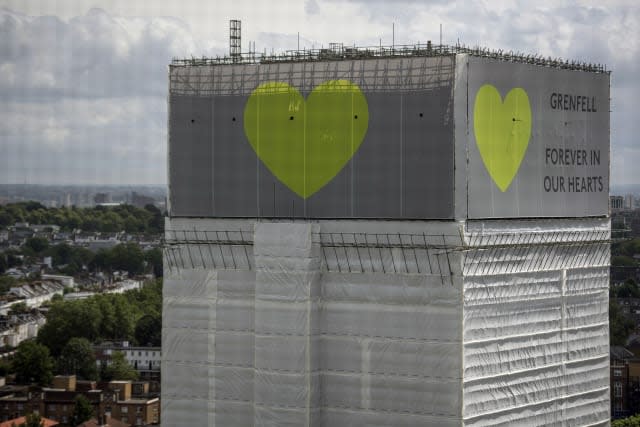'We lost the battle and the building beat us,' Grenfell firefighter tells probe

Fire crews attempting to rescue people from Grenfell Tower and control the blaze "lost the battle" against the building, a watch manager said.
Once the cladding caught alight, crews would not have been able to keep up with its rapid spread no matter how many more boots were on the ground, Paul Watson, watch manager at Hammersmith fire station, said.
He also described being unable to activate an automatic fire alarm throughout the building, poor radio reception and being "a bit confused" by the system of passing on 999 call information.
In a written statement to the public inquiry, Mr Watson said: "Once the fire caught the cladding, and surrounded the building, we could have had a lot more firefighters on the ground but we wouldn't have put that job out. It moved so fast.
"The building didn't do its job and the building beat us.
"I came away thinking that we lost the battle and the building beat us.
"I know we saved a lot of people but I know we lost a lot of people.

"I came away from a low on that job as although we did the best we could, but circumstances, particularly the building, beat us."
Mr Watson was in charge of a staging post on the ground floor, where he was holding firefighters until the bridgehead, a coordination point tracking entry into the building, was ready for them.
While there, a firefighter radioed him to say it appeared no fire alarms were sounding in the building.
He attempted to find an automatic fire alarm panel, but was unsuccessful.
Asked by counsel to inquiry Richard Millett QC if the firefighter had given him a reason for trying to activate the alarm, he said: "No, he didn't but his thoughts would have been the same as mine.

"By activating the alarm... not mass evacuation, because that wouldn't have been the intent, but some people would have naturally evacuated and at that time in the morning a lot of people would have been asleep, so it would have alerted people there was a fire or something going on."
He agreed it was unusual not to find an automatic fire alarm system in a high-rise building.
Mr Watson also recalled the radios were "difficult to use" as there was "poor" reception and too many people trying to communicate at the same time.
The communication issues prompted him to move to the second floor balcony.
It was there that he first started writing information passed to him from 999 calls on the wall, but soon changed tack as there were "too many of them".

He wrote floor and flat numbers on pieces of paper, and handed them to firefighters, who then gave them to people on the bridgehead who recorded which flat they were going to.
He said in the written statement: "I was then, and I still am, a bit confused that we had this system in place.
"Normally all of the FSG (fire survival guidance) information goes from the control unit straight to the bridgehead.
"But on this occasion we had the information going to watch manager (Glynn) Williams at the door, then to me, then to the firefighters who took the slips up to the bridgehead."


